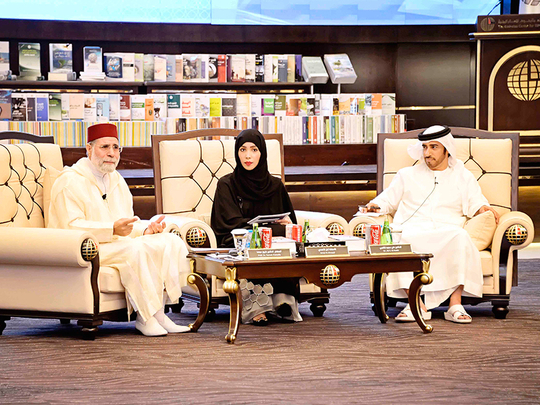
Abu Dhabi: With youth often being the first to be targeted for recruitment by extremist groups, it is important that they are given the right support system to help keep them away from extremism, scholars said during a lecture held in Abu Dhabi on Tuesday.
The talk was organised by the Emirates Centre for Strategic Studies and Research (ECSSR), as part of a Ramadan series of lectures being held at the centre, which invites scholars and professionals to counter extremist thoughts and groups.
Dr Farouk Hamada, Adviser at the Court of His Highness Shaikh Mohammad Bin Zayed Al Nahyan, Crown Prince of Abu Dhabi and Deputy Supreme Commander of the UAE Armed Forces, mentioned the crucial role of the education system, saying, “Schools have their role. We must establish curriculums that are built on correct values, and present right role models for the children. Can you imagine a young person not having a role model to look up to? We have inherited from our Prophet Mohammad (PBUH) the values of peace and mercy, and we should include this in our curricula.”
Students must also be able to positively channel their energy. “Schools should offer sports and entertaining activities for the youth. When you allow the youth to use their energy in good things they stay away from any [extremist] ideological attack,” he said.
Correct religious references are critical, according to Dr Hamada. “Properly setting religious references is important in order to stop chaotic fatwas being issued. Fatwas must be issued by people who are accredited and then approved, this is the responsibility of the state and the right of the people.”
Society must also work together to combat extremism, “We have a problem worldwide so there should be rapid decisions by the state, intellectuals and general society. Everyone should assume responsibility. We can either be negative and let things be as they are, or humanity wins and these destructive extremists and their ideas lose,” Dr Hamada said.
Dr Ali S. Al Kaabi, Deputy Vice-Chancellor for Student Affairs and Enrolment, UAE University, echoed the same sentiments, saying all of society had a role to play in protecting the youth from extremism, and listed the UAE’s military service programme as a positive development towards that goal.
“There are levels of responsibility, there is the state, family, and society. In the UAE the government exerted every effort to protect the youth, one good example and achievement of this is the military service which has major benefits. It shields the youth from destructive ideas, and it will be very helpful in protecting the state.” He said.
Al Kaabi encouraged families to also engage with their children, “The family should assume responsibility. They can fill the spiritual gap in children. The family can take the children to the mosque with them and show them how to practise the faith moderately.”
Serious discussions and development of critical thinking should also be done by the family, even on sensitive subjects, rather than being avoided. “Televisions can be shut down but this doesn’t solve the problem. Instead, you can watch a programme with your children and discuss it with them to make them think critically. For example, what recently happened in Kuwait with the bombing. Let’s discuss this with our children, and teach our children how is it possible to attack a mosque full of Muslims praying just because they are different?”
“We should enlighten our children and answer their questions,” he added.








